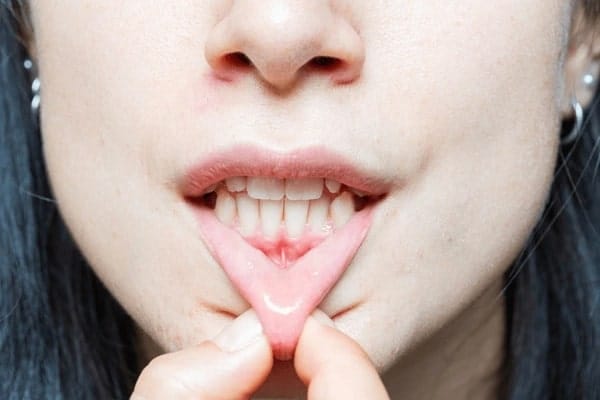Tooth pain that intensifies at night is a common complaint and can be deeply distressing, especially when it disrupts sleep. While some may experience mild discomfort, others may report extreme tooth pain that prevents them from sleeping altogether. This increase in intensity is often related to changes in blood flow and head positioning when lying down, making the tooth more sensitive and pressure more noticeable. Additionally, the absence of daytime distractions means the brain focuses more acutely on pain signals. If the discomfort becomes unbearable or persistent, it’s best to contact an emergency dentist for immediate evaluation and relief.
What are the most common causes of extreme tooth pain?
Severe tooth pain is usually a signal that something within the tooth or surrounding gum tissue requires immediate attention. Common clinical causes include:
- Advanced tooth decay exposing the inner nerve
- Tooth abscesses or localised infections
- Cracked or fractured teeth
- Gum infections such as periodontitis
- Erupting or impacted wisdom teeth
- Pressure from grinding or clenching teeth (bruxism)
It is important to understand that the severity of pain does not always correlate with the severity of the underlying issue. Only a thorough dental examination can determine the true cause.
Why does lying down make the pain worse?
When a person lies flat, more blood flows to the head. This can increase the pressure around inflamed areas in the mouth, including nerves within or around the tooth. That heightened pressure may amplify sensations of pain. Furthermore, while asleep or resting, the jaw is less active, leading to stagnation of inflammation or fluid buildup.
Other contributing factors may include:
- Decreased distractions leading to greater awareness of pain
- Heightened nerve sensitivity during quiet periods
- Clenching during sleep without realising it
What signs indicate that my tooth pain needs urgent dental attention?
Although many types of dental discomfort are manageable, certain symptoms suggest the need for prompt assessment. You should contact a dental clinic promptly if you notice:
- Swelling in the face, cheek or jaw
- Persistent throbbing pain
- Fever or general feelings of illness
- A foul taste or odour in the mouth
- Difficulty opening the mouth or swallowing
- Pain that prevents you from functioning normally or sleeping
Left untreated, infections and underlying causes may progress, potentially affecting surrounding tissues or even leading to systemic health issues.
What can I do until I can see a dentist?
While waiting for your dental appointment with your nearest dentist, it’s important to manage symptoms without interfering with the diagnosis or worsening the condition. General non-clinical management includes:
- Keeping your head elevated while resting
- Applying a cold compress externally on the affected side of the face
- Rinsing gently with warm, salty water (without swallowing)
- Avoiding chewing on the painful side
- Using a soft-bristled toothbrush and maintaining oral hygiene
Pain-relieving medications may be used as directed by a pharmacist or medical practitioner. It is essential to only take medication in line with medical advice and not use it as a substitute for treatment.
What are the possible causes and symptoms of severe dental pain?
The table below outlines common causes of significant dental pain and their corresponding symptoms:
| Possible Cause | Typical Symptoms | Risk Level |
| Dental decay (deep cavity) | Localised sharp pain, sensitivity to sweets | Moderate to High |
| Abscessed tooth | Throbbing pain, facial swelling, possible fever | High |
| Cracked tooth | Pain when biting or releasing bite pressure | Moderate |
| Gum infection | Bleeding gums, dull pain, bad breath | Moderate |
| Erupting wisdom tooth | Pressure in the back jaw, difficulty chewing | Low to Moderate |
When should you seek emergency care instead of waiting?
Sometimes, immediate dental attention is warranted to avoid complications. The table below highlights situations that should prompt you to act quickly:
| Symptom | Recommended Action |
| Facial swelling | Contact a dental clinic or hospital promptly |
| Pain that wakes you repeatedly at night | Seek an urgent dental appointment |
| Difficulty swallowing or breathing | Attend hospital emergency department |
| Fever accompanying tooth pain | See a healthcare provider immediately |
Why choosing the right dental clinic matters when you’re in pain
When extreme dental pain strikes, especially late at night, it can leave you feeling helpless. That is why it’s crucial to have a trusted dental provider who can offer guidance and appropriate treatment options. At Palm Beach Dental, we understand how debilitating dental pain can be. Our experienced team is committed to delivering comprehensive, compassionate care with a focus on individual needs. Whether you’re experiencing unexplained throbbing, facial swelling, or severe sensitivity, our team will work with you to diagnose the problem and provide a pathway to relief. With our calm, professional environment and attention to detail, we help patients manage pain and prevent future dental emergencies.
Important FAQ’s
Q1: Can I ignore severe tooth pain if it goes away after a few hours?
No. Even if the pain temporarily subsides, it may indicate an underlying issue that could worsen over time. Delaying assessment might result in more complex treatment needs.
Q2: Why does toothache seem worse at night compared to the day?
Night-time exacerbation of tooth pain is common due to increased blood flow when lying down and fewer distractions to divert attention from the discomfort.
Q3: Is it safe to take over-the-counter painkillers for dental pain?
Only take painkillers as advised by a pharmacist or health professional. They can provide short-term relief but do not address the cause of the pain.
Q4: What should I do if my face starts swelling with tooth pain?
Facial swelling may indicate a spreading infection and should be addressed by a dentist or emergency department immediately.
Q5: Can a cracked tooth cause pain even if it’s not visibly damaged?
Yes. Microfractures in teeth can cause sharp or intermittent pain, especially when chewing or exposed to temperature changes.
Q6: Will the pain go away on its own without treatment?
In most cases, persistent or extreme pain will not resolve without professional care. Ignoring it may lead to complications.
References
- Australian Dental Association. (n.d.). Dental Emergencies. Retrieved from: https://www.teeth.org.au/dental-emergencies
- Health Direct Australia. (2023). Toothache. Retrieved from: https://www.healthdirect.gov.au/toothache
- Better Health Victoria. (n.d.). Dental abscess. Retrieved from: https://www.betterhealth.vic.gov.au/health/conditionsandtreatments/dental-abscess
Disclaimer
All dental procedures involve potential risks and benefits. The information provided in this blog is general in nature and should not be taken as medical advice. We recommend that you seek guidance from a suitably qualified health professional before making decisions about your oral health. Where appropriate, you may also wish to consider obtaining a second opinion.
Any images or videos featured are shared with the informed consent of our patients and are intended for educational purposes only. They are not a guarantee of results, as every patient is unique. Treatment outcomes — including recovery, potential complications, and effectiveness — can vary from person to person.



